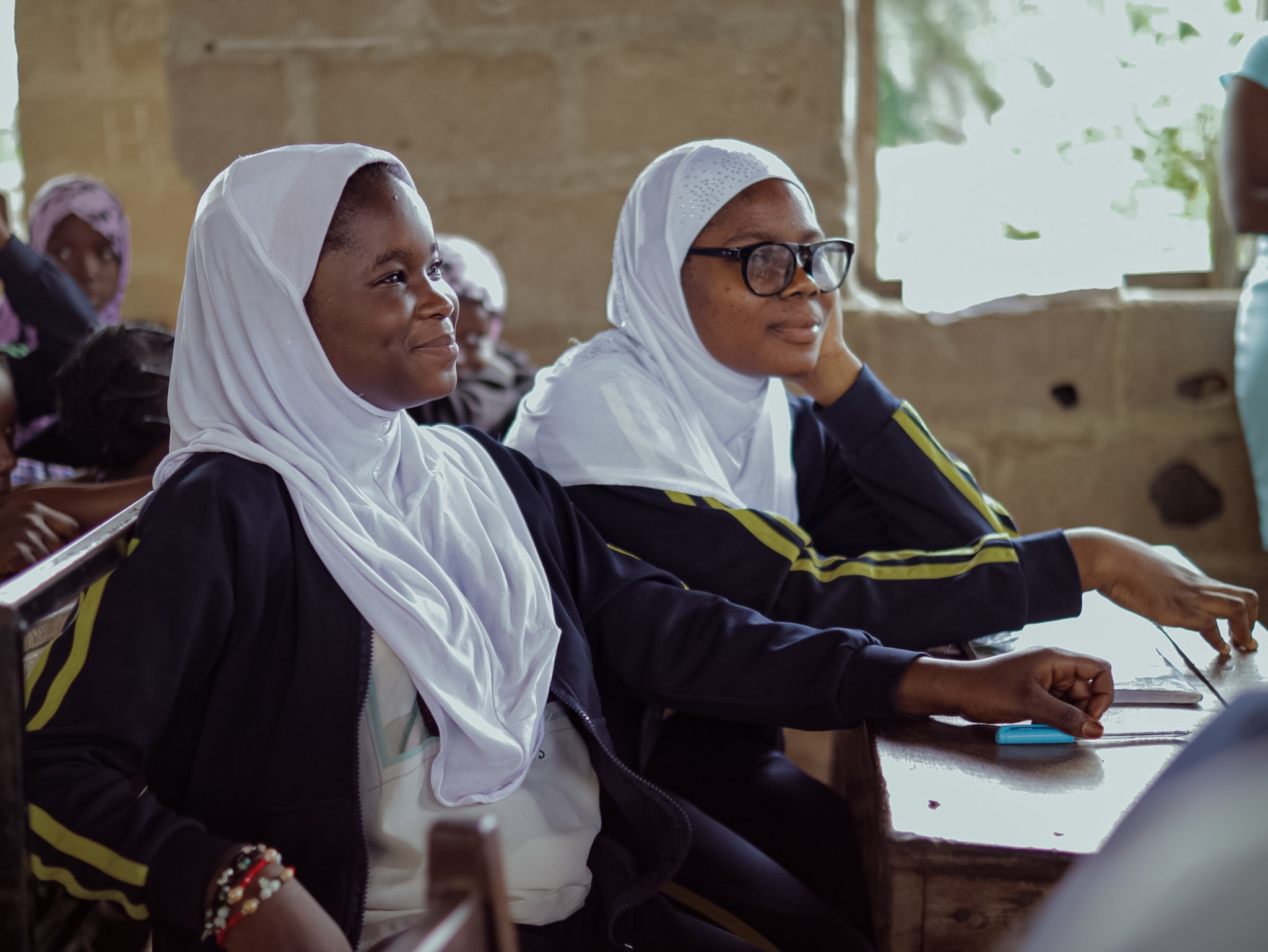
We sat down with Aishatu Kabu, the founder of Zenith of the Girl Child and Women Initiative Support (ZEGCAWIS), to discuss the vital link between menstrual hygiene and girls’ education across Nigeria.
In Borno state, the culture of silence around menstrual health keeps many girls out of school. At just 19, Aishatu founded Zenith of the Girl Child and Women Initiative Support (ZEGCAWIS) to address this issue and keep girls learning. With Malala Fund’s support, ZEGCAWIS works with the Borno state government to equip girls in public schools with sanitary care.
The importance of Aishatu’s work became even more evident during the devastating floods in Borno in September 2024 that displaced over 400,000 people and disrupted education for millions of children. “Pads are as essential as food,” Aishatu says, emphasising the need to prioritise sanitary care during emergencies.
We spoke to Aishatu about her efforts to tackle menstrual stigma and the challenges of ensuring girls’ education remains a priority during crises.
What inspired you to found ZEGCAWIS at just 19, and how has the organisation’s mission evolved since 2016?
I founded ZEGCAWIS because I am a survivor of conflict. In 2014, Boko Haram attacked my community, destroying homes and forcing us to flee to Maiduguri. Living through the trauma and uncertainty — hearing gunshots and fearing what might come next — shaped my perspective.
Unlike many girls in my community, I was able to continue my education, earn a diploma and build a life for myself. While working with Plan International, teaching women in internally displaced persons (IDP) camps about exclusively breastfeeding, I noticed their children were not in school. I shared my story with them and encouraged them to enrol their daughters, which motivated me to start ZEGCAWIS and advocate for girls’ education.
Can you share a personal experience that drives your passion for supporting girls’ education in Borno state?
I grew up in a patriarchal community where girls’ voices were silenced, and societal norms discouraged them from aspiring to leadership roles. As someone displaced by conflict, I’ve seen families de-prioritise girls’ education, especially when they reach puberty. Many girls drop out of school because they are menstruating and lack access to sanitary pads. Those who stay often miss up to 20% of the academic year, making competing with boys difficult. These challenges inspired me to found ZEGCAWIS, where we advocate for menstrual hygiene products in schools to reduce dropout rates and ensure girls can complete 12 years of education.
What successes have you seen through your #FreePadsForGirls advocacy campaign, and how has it impacted girls' education?
We launched the #FreePadsForGirls campaign in 2018 and faced significant backlash for speaking openly about menstruation. We expanded the campaign and empowered girls to break the silence by discussing menstruation on radio programmes. This advocacy also allowed us to engage the government and highlight the importance of menstrual health in girls’ education.
Our campaign triggered state-wide discussions — online, on the radio and through government-led initiatives — addressing this barrier. Our partners now direct more resources toward menstrual health, helping more girls stay in school and complete their education.
As a result, every girl in public boarding schools across Borno state received menstrual hygiene kits during the last school session.

Tell us about the impact of the Borno floods on girls' education and your organisation's relief efforts.
The Borno floods severely disrupted girls’ education. Schools delayed reopening by two weeks, and many families lost their livelihoods, along with children’s uniforms, school supplies and other essentials. Even after schools resumed, more than 80% of households in affected areas could not send their children back to school.
We joined forces with partners like CATAI, HALI, BOWDI and CASFOD, to provide emergency relief — including distributing hygiene kits, uniforms and other school essentials — that got girls back to school.
In floods and other crises, communities and governments have to think about the immediate needs of the people affected (food, shelter, health, etc.) — why do you think it's also important to address interruptions to girls' education during crises?
Girls are especially impacted during crises, as their education is often deprioritised in emergencies. For example, during the insurgency in my community, schools were repurposed as temporary camps, leaving students without access to learning for extended periods.
No emergency should warrant the closure of schools. It’s crucial to prioritise education alongside food and shelter in emergencies. When schools close, children in affected areas fall behind their peers elsewhere in the country, widening learning gaps. Governments must find solutions to keep education ongoing, even during crises, to ensure no child — especially girls — loses their right to learn. Education should be as essential in emergency responses as food and shelter.
What drives you to continue this critical work despite the challenges?
Education is the best form of protection for girls. Education is a powerful tool to break the cycle of poverty. When girls are educated, they gain the skills to earn better incomes, improve their families’ health and invest in their communities.
